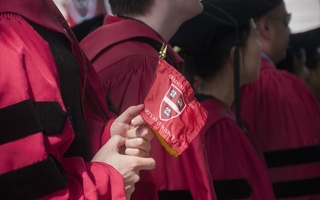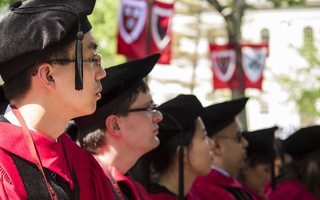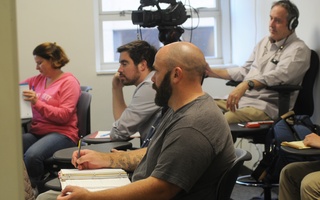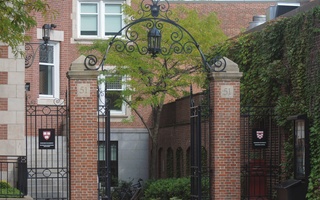{shortcode-0a43632f7f0825c0cd6b02f2d65f669c1a9ba688}
Unlike many other schools and programs at Harvard, the Division of Continuing Education has been almost entirely financially self-sufficient in recent years, raising money through tuition and other programming rather than relying heavily on money from the University endowment.
The Division of Continuing Education offers online, in-person, and summer courses for part-time and adult students. DCE courses are offered through the Harvard Extension School and Harvard Summer School.
The University launched a capital campaign in 2013, with the goal of raising $6.5 billion across Harvard’s schools. In June 2017, the campaign total reached $8 billion, providing funding for a broad array of University initiatives.
While the Division of Continuing Education falls under the Faculty of Arts and Sciences, and participates in FAS’s larger fundraising efforts, the division decided not to launch their own fundraising campaign.
Huntington D. Lambert, dean of the Division of Continuing Education, said the division’s programs are largely self-sustaining based on money earned through tuition.
“We don't ask for any funding, so we don't get support from the endowment or the University. In fact, we send money back to the faculties,” Lambert said.
Harvard has faced budget constraints in recent years in the wake of poor endowment returns and is projected to lose tens of millions annually because of a new endowment tax that Congress passed in December. The Division of Continuing Education, however, has been able to not only cover its own expenses, but also run a growing surplus.
Although other schools depend heavily on Harvard’s endowment for their annual budgets, most of the funds that the Division of Continuing Education receive from FAS’s portion of the endowment are dedicated to specific uses rather than daily operations.
“Almost all the money that comes out of [the endowment] is directed toward scholarships,” Lambert said.
“It’s more important to raise money for the College, and for House Renewal, and for advances in learning than it is for us,” he added.
Lambert said the Division of Continuing Education receives “almost all” of its funding from tuition. Tuition falls into a few main categories: the Extension School, the Harvard Summer School, a residential high school program, and professional development programs.
University spokesperson Harry J. Pierre wrote in an emailed statement that tuition at the Extension School is comparatively a better value than tuition of extension programs at peer universities. Lambert also said the tuition for Extension School courses is less expensive than for the College, though summer-term Extension School courses are priced more similarly to those offered by the College.
Although the College and several other graduate schools receive funding from alumni donations and gifts, the Division of Continuing Education has nearly no alumni contributions.
“It’s part of our history of being self-sufficient. My predecessors never developed alumni relationships,” Lambert said.
“That is something I’ve just started since I got here five years ago, so we’re now engaging our alumni around the world,” he added. “We hope that in the future that will lead to more giving.”
— Staff writer Anna M. Kuritzkes can be reached at anna.kuritzkes@thecrimson.com. Follow her on Twitter @AnnaKuritzkes.
— Staff writer Cindy H. Zhang can be reached at cindy.zhang@thecrimson.com.
Read more in News
CrimsonEMS Launches New Blood Control InitiativeRecommended Articles
-
 Extension School Students Rally for Degree Name Change
Extension School Students Rally for Degree Name Change -
 With Looming Tax Bill, Grad Students Escalate Advocacy
With Looming Tax Bill, Grad Students Escalate Advocacy -
 Grad Students Relieved Tuition Provision Out of Final Tax Plan
Grad Students Relieved Tuition Provision Out of Final Tax Plan -
 Extension School Expands Online Course Offerings
Extension School Expands Online Course Offerings -
 Division of Continuing Education Sees Significant Growth in Revenue, Enrollment
Division of Continuing Education Sees Significant Growth in Revenue, Enrollment













